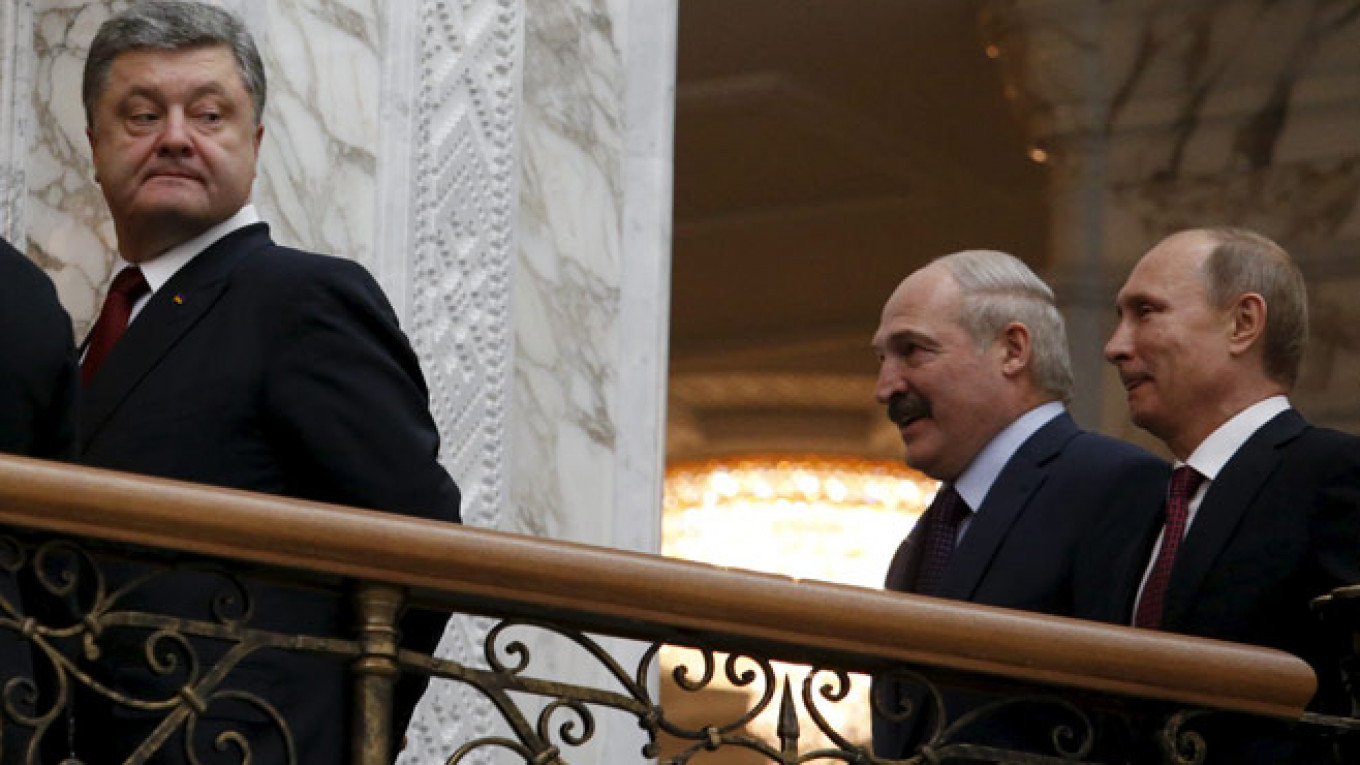The maxim, "The enemy of my enemy is my friend" was first outlined in the 4th century A.D. by Kautilya, India's Machiavelli, in his highly influential work, "Arthashastra." Although the Iron Curtain has long fallen, this thinking still persists in the West's relationship with Russia.
Russia, continually at odds with Western Europe and the U.S., is still an opponent worthy of official suspicion, if nothing else. However, Ukraine, the clear enemy of Moscow, is itself a problematic ally at best.
The political and social climate in Ukraine is the most fragile it has been since independence, and the policymakers in Kiev seem to be walking in lockstep toward the cliff's edge.
Though President Vladimir Putin isn't in much danger of sainthood, Ukrainian President Petro Poroshenko might be in the running, as far as many in the West are concerned.
When Poroshenko was elected in 2014, he promised a new style of governance and a break from the status quo of oligarchy. Earlier this year he promised to "prevent the inappropriate influence of private interests on the state" and began by dismissing Ihor Kolomoisky, governor of the Dnipropetrovsk region.
However, Poroshenko, himself a billionaire chocolate magnate, has failed to do much more than occasionally replacing an oligarch with a crony — Valentin Reznichenko, is a former business partner of Poroshenko's chief of staff. In the words of one Ukrainian MP, Poroshenko has simply replaced oligarchs with "oligarchs nouveaux" — a new class of rulers that had played second fiddle to the original set under Poroshenko's predecessors and are now ready to reap the rewards of power.
But the Chocolate King's failure to combat the oligarchy is probably the least of his sins. He has been at the forefront of a dangerous war against freedom of speech in Ukraine. The Ukrainian government banned all Russian television channels in Ukraine, a policy strongly supported by Poroshenko.
The assault on free speech continued late last year when Poroshenko forced a bill through Parliament to create the Ministry of Information Policy (MIP).
Given the power to register media outlets and set journalistic standards, the MIP is also tasked with developing a "state information strategy" and to prevent exposure of Ukrainians to what it determines to be "unreal information."
Though this Orwellian department may sound innocuous to some, the Ukrainian government's track record on press freedom is already spotty. The Defense Ministry recently attempted to require journalists to be accompanied by soldiers in what it deemed the "conflict zone" in eastern Ukraine.
Perhaps the most egregious interferences are the new "decommunization" laws signed by Poroshenko earlier this year. These laws seek to scrub communist and Nazi symbols and make illegal the suggestion that the former communist regime was anything other than criminal.
Although erasing history is outrageous enough (and expensive — more than 800 localities must change their names under this new law), these laws also have more far-reaching restrictions as well.
One bill, innocuously titled, "On legal status and commemoration of fighters of Ukraine's independence in the 20th century," makes denial or denigration of the Organization of Ukrainian Nationalists-Ukrainian Insurgent Army a crime.
The attack on free speech aside, OUN-UIA's history is controversial at best. Led by Stepan Bandera, these organizations collaborated with Nazi Germany.
Western policymakers and media outlets must recognize that Russia's enemies do not come to the diplomatic table with clean hands by default. Simply assuming that "the enemy of my enemy is my friend" in this instance will lead the West down the path of friendship with a group of questionable leaders.
Nicholas Kaufmann is a public affairs consultant based in Brussels.


